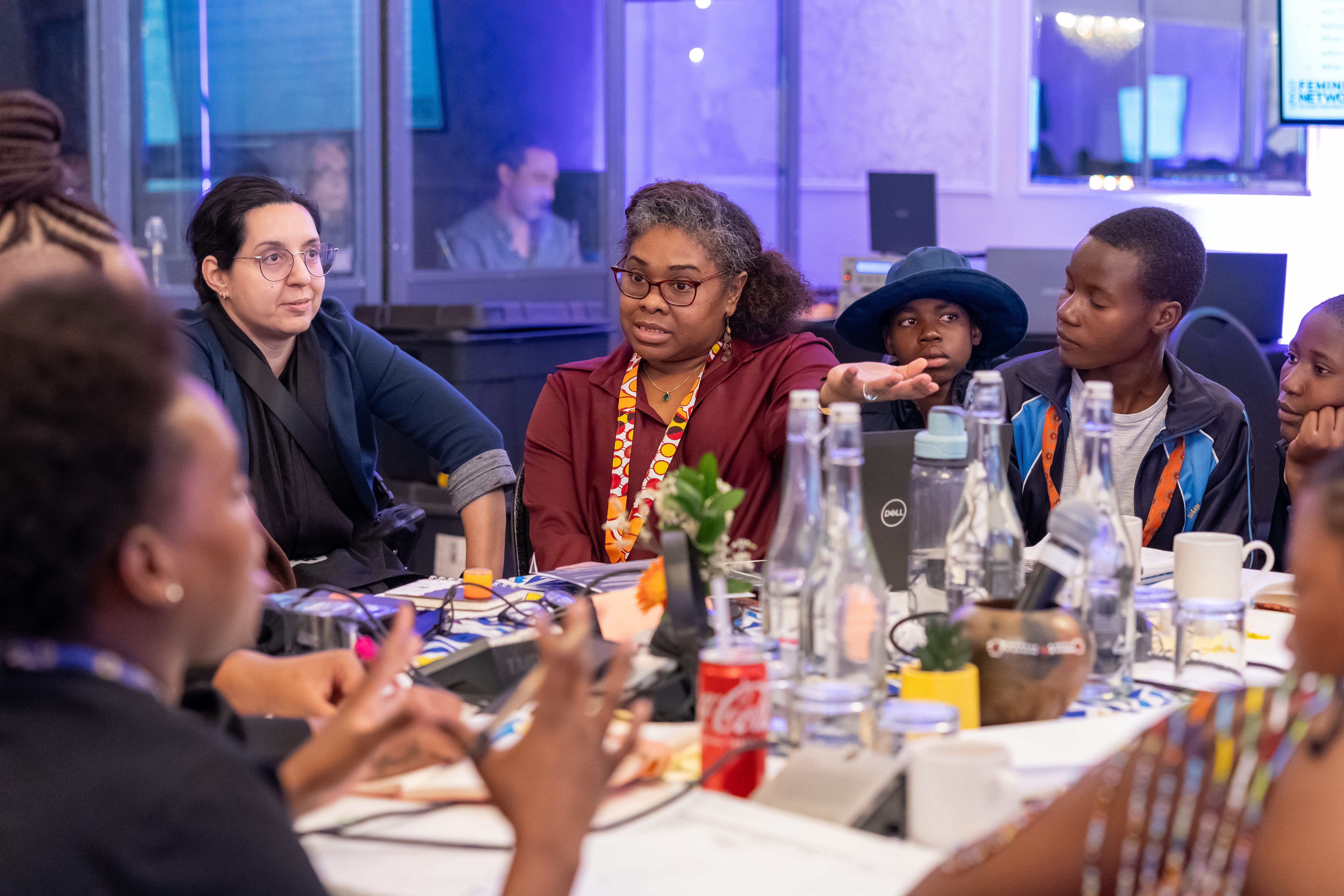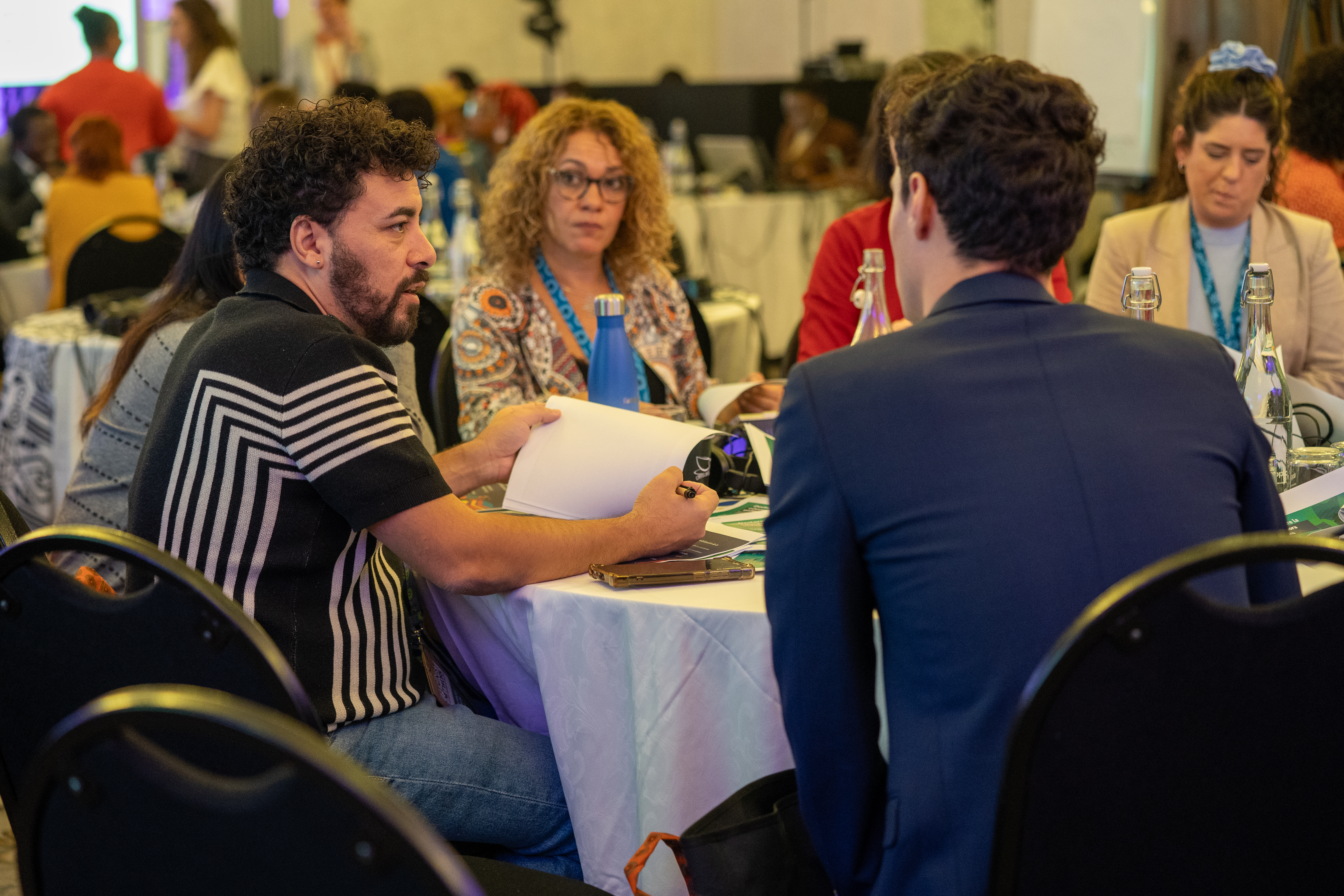The Feminist Network for Gender Transformative Education, organized by UNGEI, recently convened in Johannesburg, South Africa, bringing together feminist leaders and changemakers to accelerate progress on gender equality in education. A key outcome of this gathering was the unveiling of four Regional Declarations on Gender Transformative Education that will guide our efforts moving forward.
These regional declarations analyze the needs and opportunities for advancing gender transformative education (GTE) across four critical areas: research, advocacy, funding, and policy. They represent our collective call—including civil society organizations, governments, and UN agencies—for gender transformative policies that go beyond mere access to education. Our aim is to challenge social norms and transform educational systems to alter power dynamics in favour of gender equality. In drafting these regional declarations, we considered the specific needs of systematically excluded communities, advocating for inclusive curricula for girls in rural areas, refugees, people with disabilities, indigenous populations, LGBTIQ+ individuals, and those in conflict zones. In doing so, we are committed to ensuring that no one is left behind on the path toward GTE.

The regional declarations reflect the collective voices of diverse countries, encapsulating shared values and common goals. 590 organizations and experts from 112 countries were consulted, representing grassroots movements, international bodies, and funding agencies. They lay the foundation for collective actions and long-term commitments toward advancing GTE. Now that we have a global understanding of GTE's current status across various regions, we are prepared to implement actionable plans through our combined efforts.
The regional declarations can influence national policies and help build stronger, unified movements. By focusing on priority sectors relevant to each region, the regional declarations outline clear commitments and goals to hold governments, institutions, and stakeholders accountable for progress toward gender equality in education. They serve as effective advocacy tools, mobilizing civil society organizations and feminist activists to push for reforms and gender-responsive educational policies. Through multiple consultations, each regional focus group identified key barriers to GTE, including early and child marriage, gender-based violence, anti-rights movements, and climate change. Addressing these sectors is essential for dismantling obstacles to GTE.

Access to education is a fundamental human right, yet many children remain out of school—disproportionately affecting girls, young women, and non-binary individuals. A central focus of the regional declarations is to challenge traditional norms and dismantle harmful gender stereotypes that hinder girls' access to education, particularly in fields like STEM. We advocate for more inclusive curricula and teaching methods while raising community awareness about the importance of girls' education. Importantly, our consultations highlighted that gender is not the only factor affecting girls' education; collective action is necessary to influence policies addressing issues like climate change and peacebuilding.
While each region has its unique characteristics and priorities, they share common goals critical to advancing GTE. These include:
- Increasing funding and closing the funding gap in GTE without overlooking any critical aspects.
- Strengthening and encouraging research initiatives to close the knowledge gap and ensure impactful interventions.
- Addressing gender biases and stereotypes in teaching methods and curricula.
- Promoting girls’ education in marginalized communities, particularly for refugees and those in conflict-affected areas.
- Monitoring and evaluating progress, and holding governments and other stakeholders accountable.
Looking ahead, the momentum gained from these regional declarations will shape a new global report, The World We Want: Four Regional Declarations for Gender Transformative Education, which is envisioned to be a powerful advocacy tool for our movement in 2025 and beyond. Supported by actionable advocacy plans, we aim to drive progress at national, regional, and international levels, ensuring that gender transformative education remains a priority on policy agendas. We invite the global community—activists, educators, policymakers, and the public—to join us in amplifying these regional declarations and supporting the World We Want report. Together, we can build a future where gender equality in education is not just a vision but a reality.



 English
English العربية
العربية Български
Български Hrvatski
Hrvatski Čeština
Čeština Dansk
Dansk Nederlands
Nederlands Suomi
Suomi Français
Français Deutsch
Deutsch Ελληνικά
Ελληνικά हिन्दी
हिन्दी Italiano
Italiano Română
Română Русский
Русский Español
Español Maltese
Maltese Zulu
Zulu አማርኛ
አማርኛ